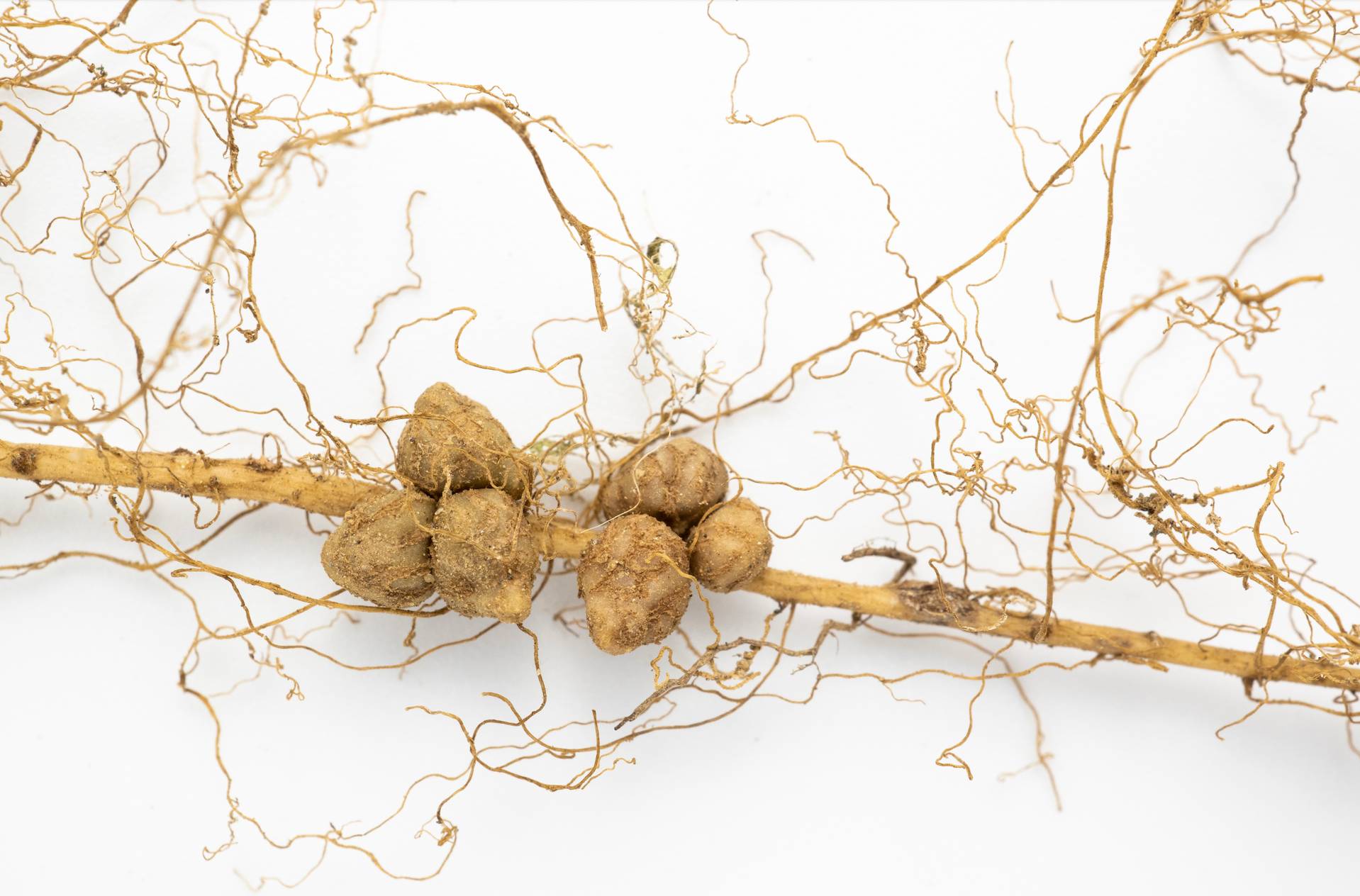Creating climate-resilient crops for future food security
A collaboration between the Chinese University of Hong Kong (CUHK) and Manchester, led by Professor Ting Fung Chan and Professor Patrick Cai, is boosting food security for the future by using advanced genetic engineering to create climate-resilient crops.

Boosting growth with soil bacteria
As a vital source of protein, minerals and vitamins, cheap and plentiful legume crops such as soya, chickpeas and lentils are critical for communities in many developing countries.
“It's been a pleasure to work with colleagues from CUHK, supported by the collaborative fund. Together, we aim to develop step-changing biotechnology methods to address global challenges such as climate change and feeding an ever-growing population. ”
Professor Patrick Cai
Rhizobia are soil bacteria that work with the legume crops, such a soya, to convert atmospheric nitrogen into a fertiliser that helps them grow. This process enhances the sustainability of agricultural processes, creates a positive impact on soil health and fertility, and encourages healthy ecosystems.
Rhizobia are highly sensitive to changes in soil conditions such as temperature, moisture, pH and mineral levels. Climate change can affect these soil conditions and threaten survival of the bacteria – which could significantly reduce important crop yields.
Moving towards sustainable agricultural systems
Diverse rhizobia species respond differently to environmental stresses. While some species have developed useful stress-tolerance mechanisms, not all strains can form the partnerships needed to build resilience in edible crops.
The project, led by teams at Manchester and CUHK, used advanced genetic engineering tools to create a ‘toolbox’ of the best stress-tolerance pathways. This was then used to design new rhizobia strains that could withstand the local impacts of climate change while supporting growth of legume crops.
The CUHK researchers have high-level expertise in the genetics of rhizobia bacteria and the relevant crops, as well as a detailed understanding of soil characteristics. This was complemented by Manchester’s specialism in synthetic and evolutionary genomics. By combining existing knowledge across both institutions on genes, pathways and cutting-edge genetic engineering strategies, a solid foundation has been created for the development of sustainable agricultural systems.
Ensuring future stable food production
Improving our understanding of rhizobia genetics and developing more resilient strains will boost legume crop yields in a sustainable way. With climate change threatening global food security and a growing population to feed, this work is critical for ensuring stable food production. By engineering more adaptable rhizobia, environmentally friendly, climate-smart agriculture can be established that benefits farmers and the planet.
The project’s innovative approach could, in the future, be applied to a range of global challenges associated with climate change and sustainable agricultural practices. The development of more efficient rhizobia strains that are better at converting nitrogen into fertiliser will boost soya crop yields, particularly in regions where soil fertility is low, or under conditions of environmental stress such as drought or high temperatures. It also has the potential to reduce the impact of soya farming on deforestation, supporting carbon sequestration and restoring ecosystems for a more resilient and sustainable future.
Inspired by this work, the team have now secured ARIA funding to apply similar techniques to potatoes, another staple food essential for future food security in a changing world.
Meet the researcher
Patrick Cai is Chair in Synthetic Genomics, Chemical Biology and Biological Chemistry at The University of Manchester.
Researcher profile
International partnerships
We collaborate with global businesses, universities and policymakers to share our expertise and bring lasting benefits to industry and society.
Discover more
